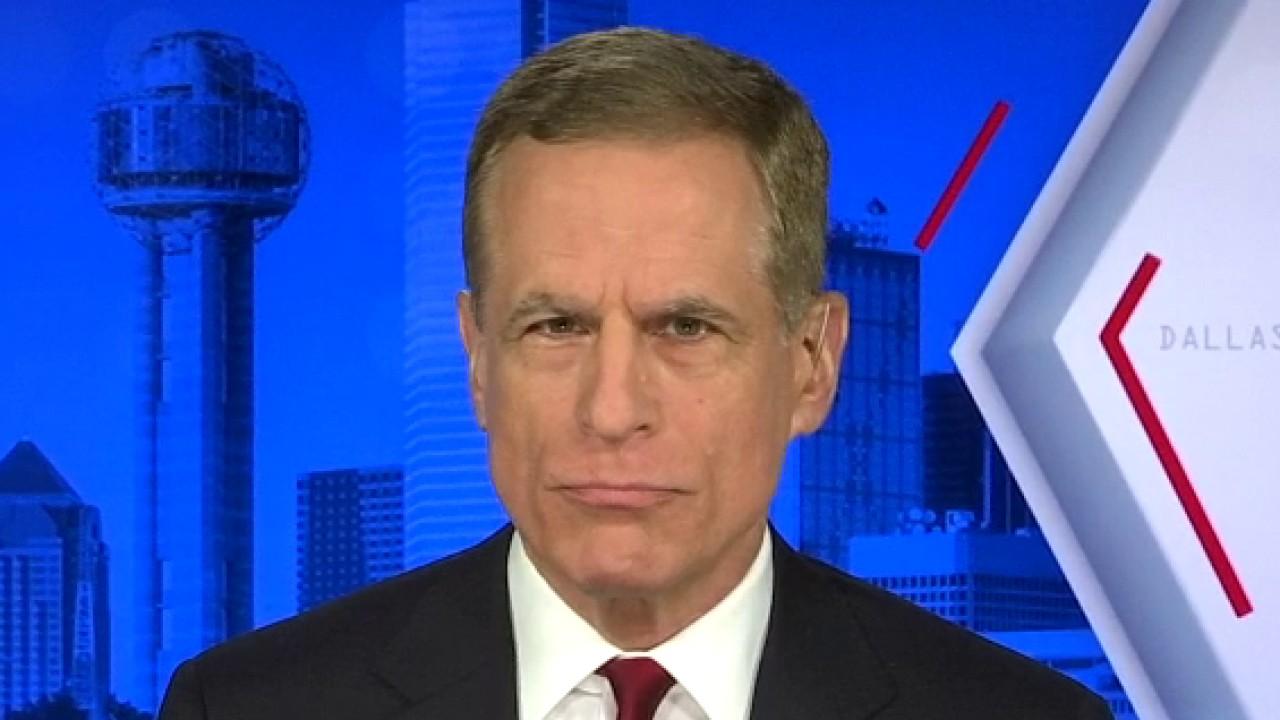Fed’s Kaplan warns coronavirus fallout could ‘spill over’ to US economy
Global growth in the first half of the year will likely be 'substantially weaker,' Kaplan warned
Dallas Federal Reserve President Robert Kaplan on Friday warned that economic fallout from the deadly coronavirus outbreak could spill over into the U.S.
"China is a meaningful percentage of global growth. So we know global growth in the first quarter to first half of the year is going to be substantially weaker," he said during an interview with FOX Business' Maria Bartiromo on Friday. "And when that happens, it spills over to the U.S. economy."
The virus, which causes a disease called COVID-19, has killed close to 3,000 people, with more than 80,000 cases reported worldwide, mostly in China. So far, there have been a total of 60 confirmed cases of coronavirus in the U.S. That figure includes individuals who have been repatriated to the country.
It has forced China, the world's second-largest economy, to all but halt its production of consumer goods like phones, clothing and automobiles and institute mass quarantines in some cities and place severe restrictions on an estimated 780 million people, the Verge reported.
CORONAVIRUS COULD DRAG US ECONOMY INTO RECESSION: JANET YELLEN
Dozens of U.S. companies, including Apple, Disney and Starbucks, have temporarily closed their locations in China or limited their hours.
"The thing that companies are trying to assess, and what we're trying to assess, is what will be the demand effect," Kaplan said. "We already know that the travel industry is affected in the United States, we know the oil industry is affected already. That's the part that's uncertain, and we're going to have to continue to monitor this."
Although hopes for an interest rate cut by the central bank has spiked in recent weeks after coronavirus slammed the stock market and cast a dark cloud over the U.S. economy, Kaplan would not commit to lowering the benchmark federal funds rate at the Fed's March 18th meeting. Kaplan is a voting member of the Federal Open Market Committee.
HOW LONG DOES A RECESSION LAST?
"I'll be going into the meeting prepared to make a judgment," he said. "As I sit here today, not going to comment publicly, I've said up to now it's too soon to make a judgment. But I'll be prepared to make a judgment on what we ought to do as we go into the March meeting."
According to the CME's FedWatch tool, traders are pricing in a 100 percent chance of a rate cut next month. About 55 percent expect the Fed to cut rates by 25 basis points, setting it to a range between 1.25 percent and 1.5 percent, while 45 percent expect a larger 50-basis point cut.
Still, James Bullard, the president of the Federal Reserve Bank of St. Louis, noted that coronavirus cases appear to be stabilizing in China and suggested that a rate cut is not necessary.
“Further policy rate cuts are a possibility if a global pandemic actually develops with health effects approaching the scale of ordinary influenza, but this is not the baseline case at this time,” he said during a presentation before the Fort Smith Regional Chamber of Commerce on Friday.
In 2019, Bullard was one of the most vocal advocates of an interest-rate cut. The Fed cut rates three times by 25 basis points last year, setting the range between 1.5 percent and 1.75 percent.
